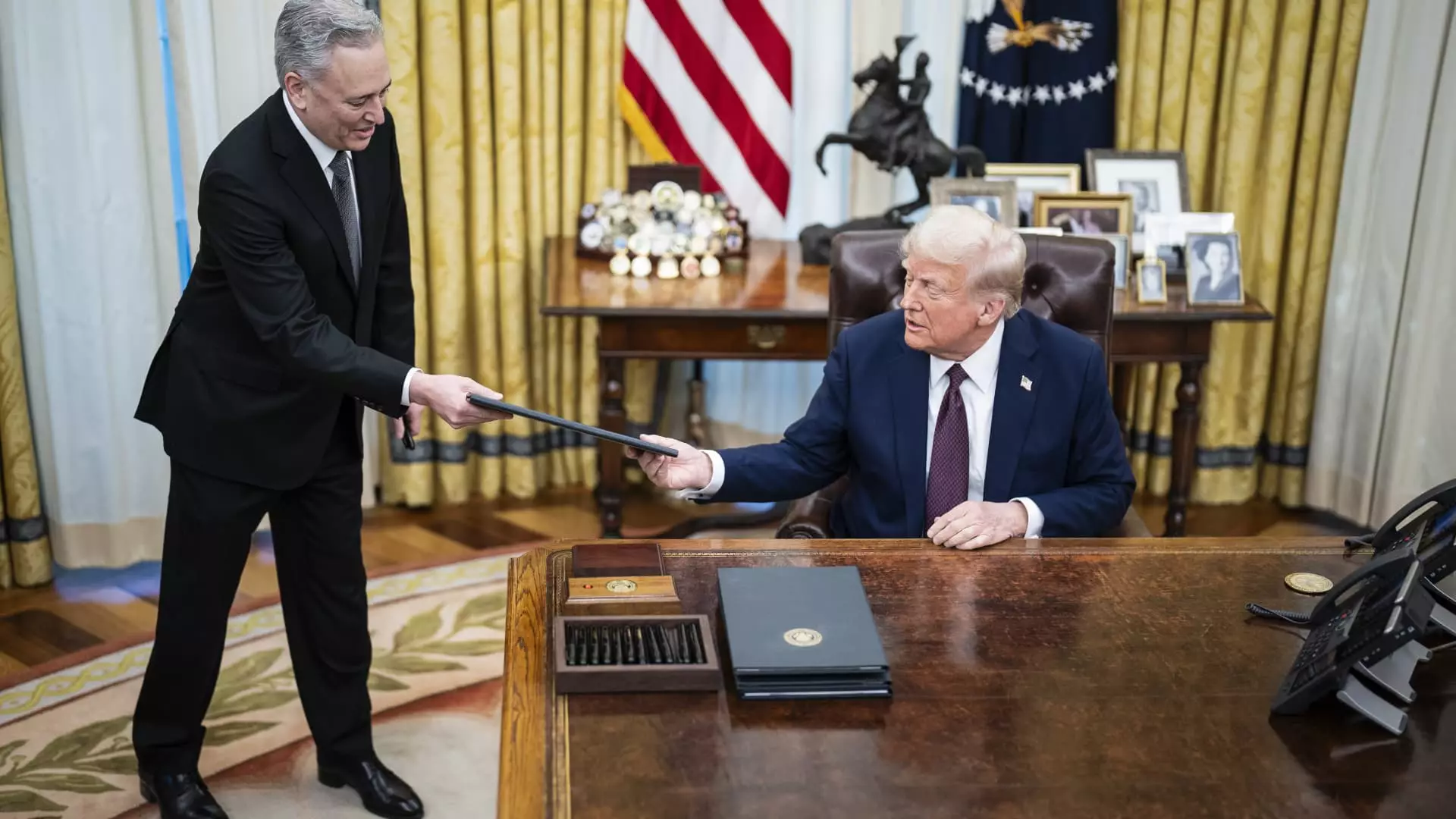The realm of cryptocurrency has swiftly transformed from a fringe financial concept to a competing force within global economies. With rising interest from consumers and institutions alike, the United States has taken sizable steps towards integrating digital assets into its financial fabric. Enter President Donald Trump’s recent decision to establish a Strategic Bitcoin Reserve, a move that some hail as visionary, while others warn is an ill-advised gamble that could have repercussions for both the digital and traditional financial landscapes.
Distorting the Canon of Cryptocurrency
The creation of a Strategic Bitcoin Reserve solidifies the American government’s endorsement of bitcoin, a move that holds both symbolic and practical implications. Yet, the insistence to use exclusively confiscated btc—seized during legal proceedings—opens a floodgate of ethical and operational dilemmas. Initially, the intention behind such a reserve sounds noble: protecting taxpayers from financial exposure and investing in a future-proof asset. But it distorts the ethos of decentralized cryptocurrency, which was founded on principles of autonomy, democratization, and transparency.
What was once an asset of the people risks being misappropriated for governmental maneuvering. Branching out into the use of other cryptocurrencies beyond Bitcoin—namely XRP, Solana’s SOL, and Cardano’s ADA—would extend this distortion, arguably setting a precedent that government involvement can muddle the purity of an open market. Crypto enthusiasts and investors have already raised alarms, questioning Trump’s assertion that these additional cryptocurrencies belong in a strategic framework. If Bitcoin is “the only digital asset that meets the bar,” as some Bitcoin billionaires assert, then the inclusion of others could muddle the clarity of its value proposition.
Political Capital or Financial Folly?
What remains most alarming is not only the legality behind this executive order but the political capital and potential fallout associated with it. The U.S. government has always had a tenuous relationship with digital assets, and the consumer sentiment toward cryptocurrencies remains complex and often cynical. A declaration like this could invite a barrage of scrutiny and possible reinvigorated regulations that could hinder the organic growth necessary for cryptocurrencies.
While proponents like David Sacks tout this as a path to establish the U.S. as the “crypto capital of the world,” the skepticism surrounding governmental control looms large. The unintended risks posed by introducing a federally sanctioned digital asset reserve could lead to market manipulation and increased volatility rather than stability. The United States should not position itself as the gatekeeper of value in a space designed to empower individuals.
The Moral Hazard of Government Management
One question persists—how will this reserve be managed? Critics of this initiative emphasize the requirement for the reserve to serve as a long-term store of value rather than an active trading portfolio. Currently, this could be a naïve hope. Just as any government intervention in finance carries with it inherent risks, the operation of a Bitcoin Reserve could tempt political powers to leverage it for populist agendas or even questionable monetary policy—an occurrence that could drive the assets toward an irrecoverable depreciation.
For instance, if this reserve were ever to be used as a means of economic influence—whether through deliberate mismanagement or unfavorable policy decisions—the ability of bitcoin as a valuable asset could be irrevocably compromised. Spaces created for speculation endanger the very foundation Bitcoin was built on and pose existential questions about the sustainability of cryptocurrencies in the face of governmental oversight.
The Broader Implications for Institutional Investors
Despite unwavering skepticism from many corners, including prominent bitcoin advocates, there’s a rationale suggesting this move could bolster institutional interest and confidence. Long-term investors may welcome the clarity that a U.S. Strategic Bitcoin Reserve could provide, viewing it as a form of governmental endorsement. However, this highlights a harrowing trend: that reliance on governmental validation is now a desirable trait for an asset that, by its very nature, was established to operate independently from state influences.
Instead of paving the way for unencumbered innovation, American regulatory frameworks, as demonstrated by this order, risk suffocating the evolutionary aspects of cryptocurrencies. When delineating a path forward, it must be approached with great care, lest it revert back to a speculative commodity instead of a legitimate store of value.
Engaging with cryptocurrency shouldn’t stem from compulsion or interference but arise from genuine collaboration between the innovators and institutional players. Until that equilibrium is reached, initiatives like Trump’s Strategic Bitcoin Reserve will remain politically motivated risks that potentially undermine what cryptocurrencies genuinely represent.


Leave a Reply